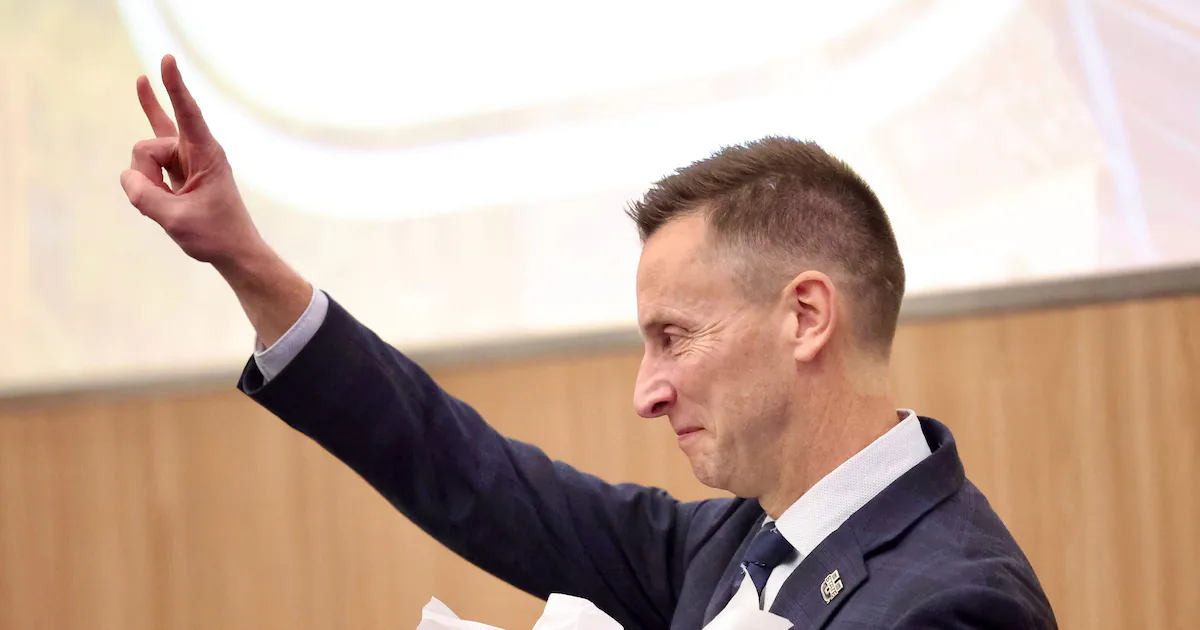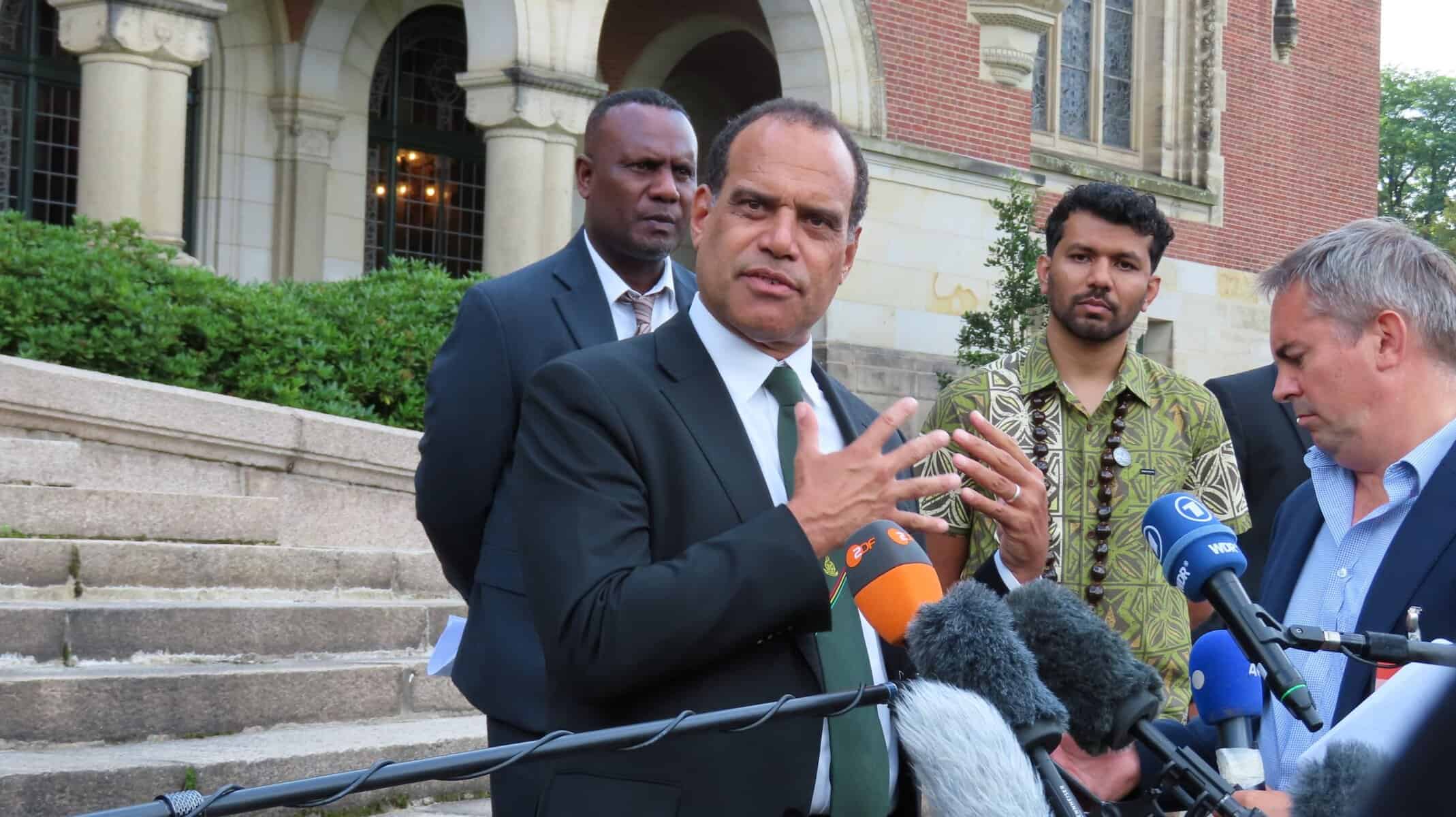Copyright Salt Lake City Deseret News

Utah State University has a new chief. On Thursday, the Utah Board of Higher Education announced Brad Mortensen will be the 18th president of the state’s only land-grant university. Mortensen replaces former President Elizabeth Cantwell, who was hired in 2023. Cantwell resigned in February after being selected as president of Washington State University. USU’s new president — who was unanimously approved by the board during a meeting on campus — is a familiar face in Utah higher education. Since 2019, he has served as president of Weber State University. He will begin his service at USU on Nov. 10, 2025. “This is incredibly humbling — and almost unbelievable. … Go Aggies!,” said Mortensen in his first remarks as USU’s new president. Mortensen is a USU alum, claiming a bachelor’s degree in political science. In his opening remarks, he pledged to lead the school with integrity and earn the trust of the USU community. Mortensen also noted his appreciation for Weber State University and the relationships he’s developed on the Ogden campus over the past six years. A first-generation college graduate, Brad holds several degrees, including a doctoral degree in educational leadership and policy from the University of Utah. Following Cantwell’s departure, Alan Smith was named as USU’s interim president. He is expected to return to his position of the dean of the Emma Eccles Jones College of Education and Human Services. Challenging moments at USU Mortensen assumes the reins at Utah’s only public land-grant research university at a volatile period in the school’s history. Last August, lawmakers ordered a broad audit of spending processes at USU after an initial review discovered several concerns. The call for a deeper analysis of USU’s policies and practices follows a limited review from the Office of the Legislative Auditor General of the school’s President’s Office. Legislative auditors recommended the full audit after the Office of the Legislative Auditor General examined several USU procurement areas — including the school’s spending policies; purchase orders for legal, professional and consulting service; procurement card transactions from the President’s Office and asset tracking related to the president. In their report to lawmakers, state auditors identified “several risks” regarding structure, governance and leadership concerns that suggested a full audit at USU was in order. Identified risks included issues with the design and implementation controls of procurement policies and concerns that USU’s board of trustees and senior leadership may not be providing sufficient oversight on key procurement and administrative matters. Additionally, the report noted that over the past two years, purchase card transactions with the President’s Office had significantly increased compared to the previous five years — including the amount spent on presidential motor vehicle assets. USU moves past its Title IX compliance review And last month, the Department of Justice announced it had closed its five-year Title IX compliance review of USU. In 2020, the DOJ and USU entered into a settlement agreement addressing the federal department’s findings that the university violated Title IX in response to allegations of sexual harassment, including sexual assault. The DOJ launched an investigation in 2017 based on allegations that the university failed to respond to numerous reports of serious sexual assaults — including a high-profile case that alleged former Aggie football player Torrey Green had sexually assaulted several women. USU reports making “sweeping changes across policies, training, campus culture and organizational structure” — while revising its sexual misconduct, grievance and reporting policies. And like other degree-granting colleges in Utah USU was required by the Legislature to reallocate 10% of its budget to programs determined to be “high value” as part of House Bill 265 — the so-called “Higher Education Strategic Reinvestment” plan. The reinvestment plans for the other Utah colleges and universities were approved by the Legislature — but USU’s final plan pending approval was placed on hold until it could be examined and revised by the school’s new president and then presented to the Utah Board of Higher Education for assessment.



